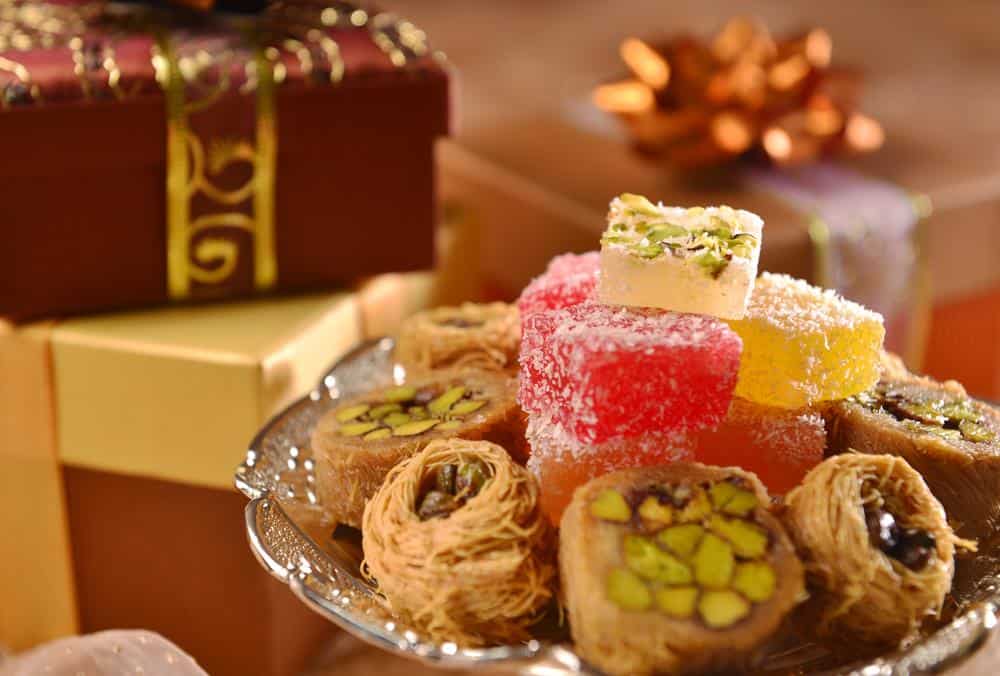
How to Celebrate Eid-ul-Fitr | Duties and Obligations

The month of blessings Ramadan is about to end in just a few days. We are bidding farewell to the Holy month Ramadan. When Ramadan ends we celebrate Eid-ul-Fitr which is “festival of breaking the fast”. The Eid which comes after Ramadan is one of the most awaited events among Muslims. Muslims from across the globe make special preparations for this special day.

The days of the Eid are the days of joy and happiness, and these days are described for some acts of worship, special practices, and traditions, including the following mentioned below:
- Doing Ghusl: One should wake up early in the morning and do ghusl before going to Eid prayer. Doing ghusl on the day of Eid is an act of worship. Doing ghusl on the day of Eid is a Sunnah of Prophet Muhammad (PBUH) and a Muslim must also make sure that before wearing on clean clothes he is also clean in bodily respect as well.
- Wearing new Clothes and putting on perfume: On this day of joy and happiness put new clothes after doing ghusl. If the clothes are new then it’s good. If new clothes are not available then one must wear the best clothes and on those best clothes, one must apply perfume as well to ensure that one is best prepared for the prayer.
- Recite Takbeer: It is Sunnah of Prophet Muhammad (SAW) to recite Takbeer on Eid-ul-Fitr. Recitation of Takbeer should quit when the imam comes out to deliver the khutbah before the Eid prayer.
- Visiting one another: On the day of happiness nothing wrong with visiting relatives, neighbors and friends. This is something that people used to do on the Eid, and it was said that this is one of the reasons for changing one’s route when coming back from the Eid prayer place so that he could meet and greet as many people as possible on the day of Eid.
- Wishing one another: After Eid prayer, Muslims should congratulate one another by saying “Eid Mubarak”. This greeting varies according to geographic location. In different countries, Muslims congratulate in their local language.
Duties and Obligations
The lines below discuss the Eid-ul-Fitr as a blessing and the major duties and obligations a Muslim must undertake and perform related to Eid-ul-Fitr.
Eid-ul-Fitr is an occasion of joy and happiness, however, this joy and happiness do not come with the general significance where celebrations are without any boundaries. The celebrations of Eid also come with some assertive limits in the form of duties and obligations. These duties and obligations come in the form of Sunnah of Prophet Muhammad (SAW) and the things He (SAW) used to do on the day of Eid.
Offering Eid Prayer
Offering Eid Prayer is one of the major obligations related to Eid-ul-Fitr. On the day of joy and happiness, it does not mean that on that day a Muslim can forget Allah Almighty. Praying to Allah on the day of Eid means that a Muslim understands and realizes the fact that all the joy and pleasure in his life is a blessing of Allah and He needs to be thanked for it. Hazrat Jabir bin Samurah tells about the offering of Eid prayer with Prophet Muhammad (SAW) in the following way: “I prayed with the Messenger of Allah the two Eid prayers more than once or twice, without an Adhan or Iqamah” (Muslim). From hadith we can conclude that offering Eid prayer is the Sunnah of Prophet Muhammad (SAW), hence, every Muslim should offer this prayer and start this holy occasion with the worship of Allah.
Paying Sadqah-tul-Fitr
Islam emphasizes on giving charity. The significance of giving charity increases, even more, when there is a need for making joy and happiness to the less fortunate ones. The celebrations of Eid-ul-Fitr are a perfect occasion when being charitable can lead to others being happy and joyful. In this regard to spreading happiness to less fortunate, Islam gives the concept of Sadqah-tul-Fitr. Sadqah-tul-Fitr is alms giving that have to pay before offering Eid-ul-Fitr prayer. The right time for paying this Sadqah-tul-Fitr is between the Fajr and Eid-ul-Fitr prayer. However, the Sadqah-tul-Fitr can also be offered during the month of Ramadan so that the less fortunate can have time to buy necessary things with which they can celebrate their Eid in a better way. Muslim must consider this Sadqah-tul-Fitr as an obligatory act related to the celebrations of Eid-ul-Fitr and offer it before the Eid prayer.
In short, Eid-ul-Fitr is an occasion of joy and happiness all around. In celebrations of this holy occasion Muslims must not forget these celebrations need to be thanked and in celebrations, one also needs to make the less fortunate a part of it so that they could also celebrate Eid and the spirit of this blessing. May Allah give us the strength to celebrate this joyful occasion in its best manner! Ameen




